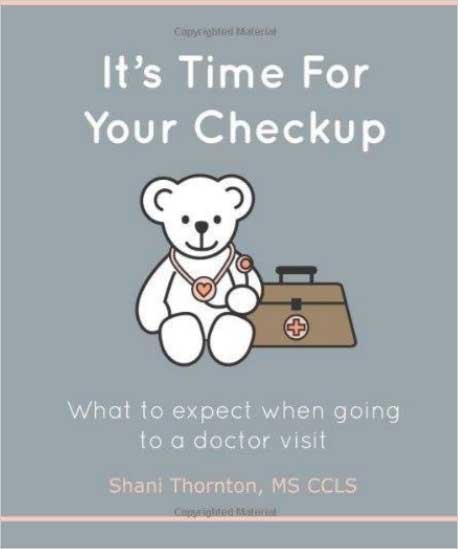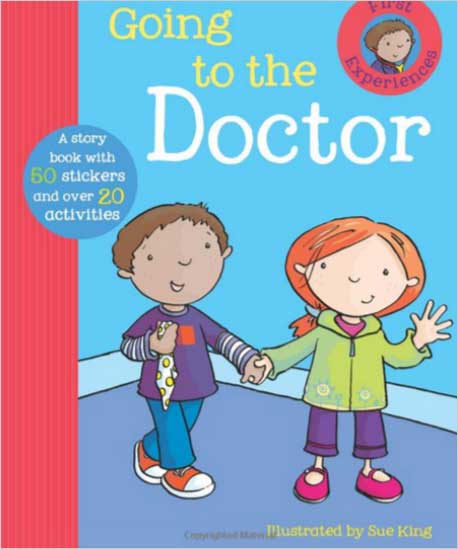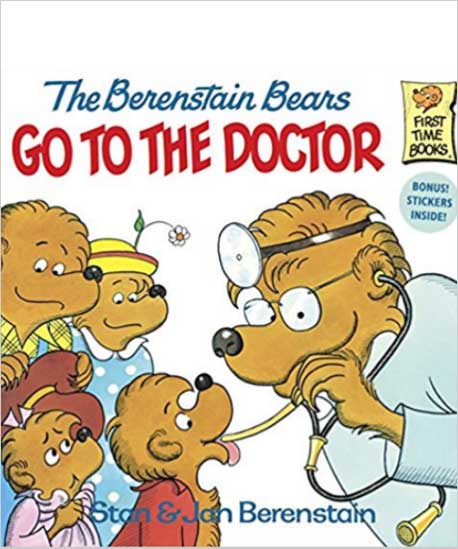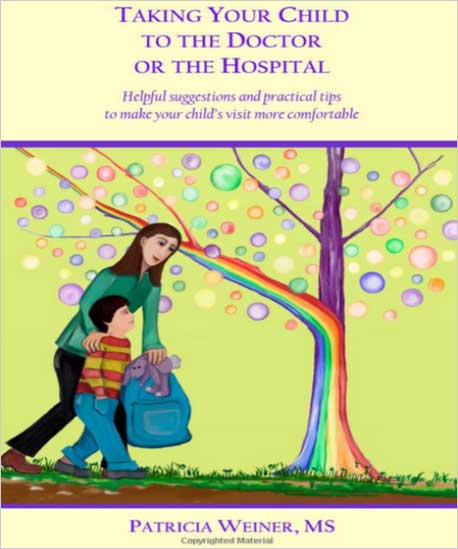SUPPORTING CHILDREN
DURING A MEDICAL EXAM
- Receive honest information
- Build trusting rapport with medical providers
- Have parental support and involvement
- Explore and play with medical materials
- Have been prepared for a medical procedure through a variety of modalities (images, videos, tactile, auditory, rehearsal)
- Have a plan for coping and distraction during the procedure
- Are praised for their efforts (ex: “Great job keeping your arm still!”)
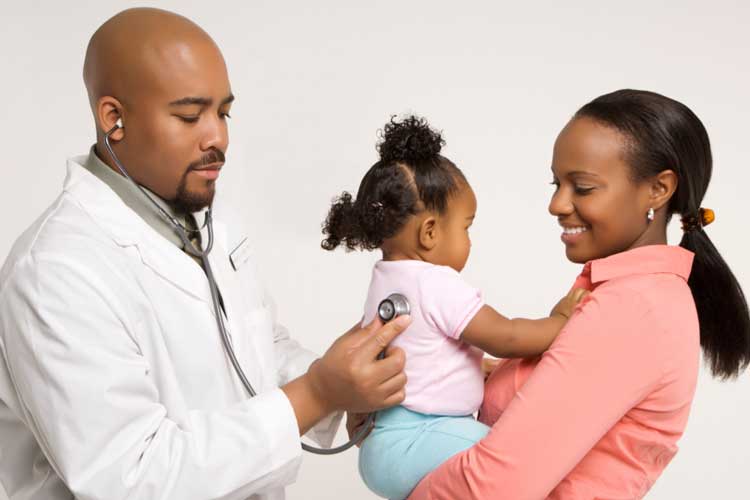
COMFORTING CHILDREN
During a child’s hospital stay, you may notice some changes in behavior. This is quite normal. Download our comfort cards with suggestions that other families have found helpful for comforting their babies, children, and teens.
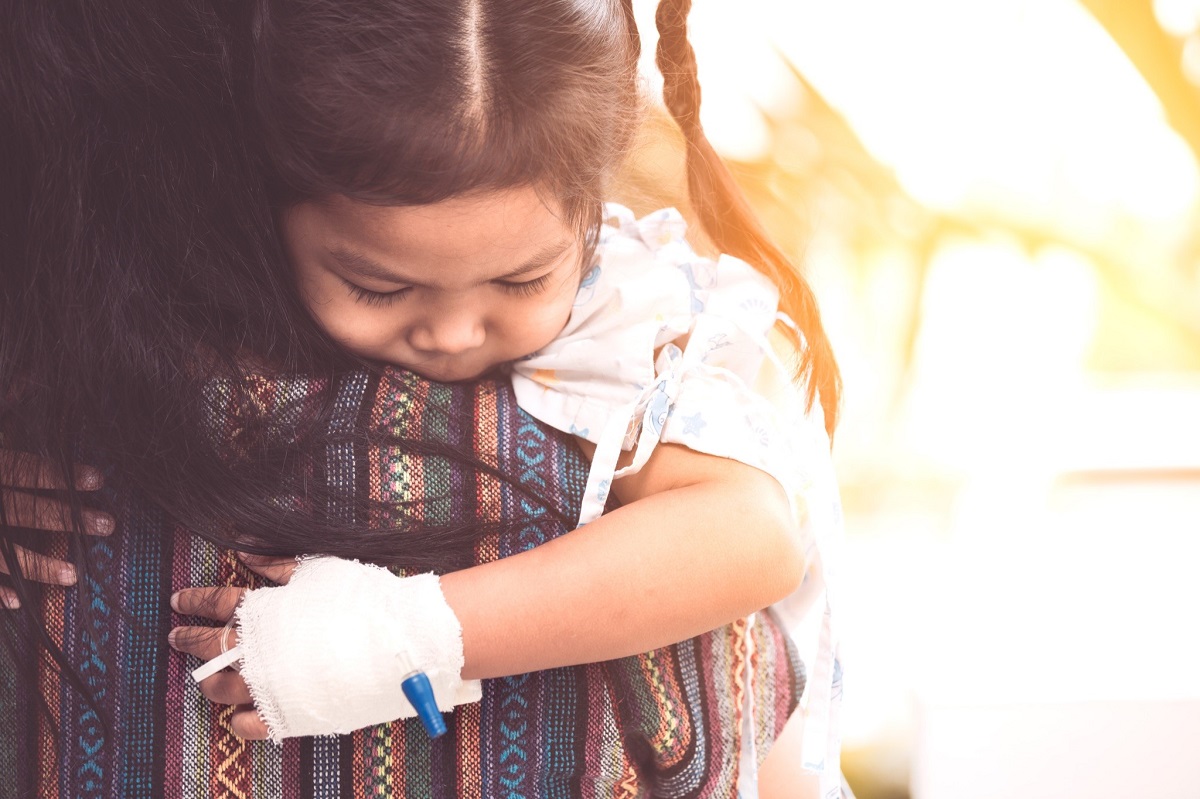
Explore some tips
Explore below for tips on how to help kids of all ages cope with the healthcare experience. For your convenience, you also can download a PDF version.
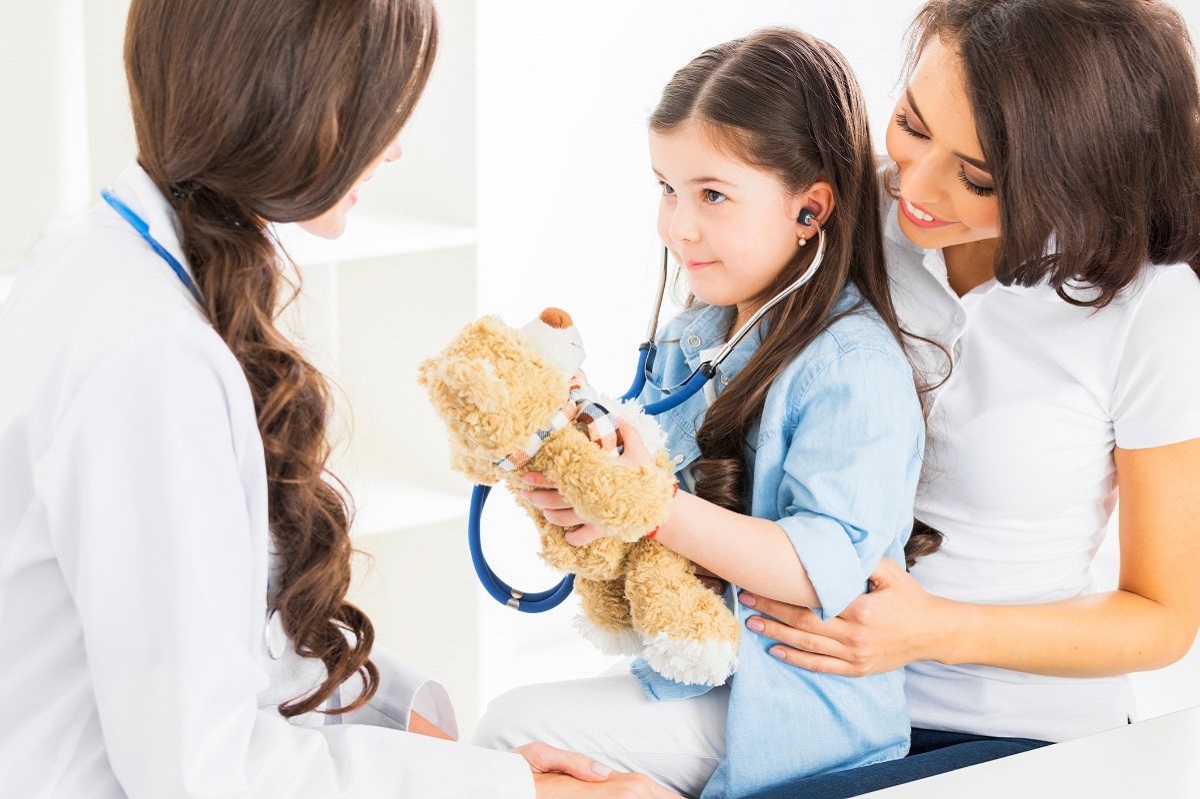
COPING BY AGE
BABY: FROM BIRTH TO 1 YEAR
Common Concerns
- Separation from caregiver
- Loss/change of routine
- Multiple strangers & different caregivers
- Unfamiliar environment … sights, sounds, smells
Ways to Cope
- Caregiver presence
- Maintain routine as much as possible
- Comfort holding
- Call baby by name
- Having a comfort item from home (blanket or pacifier)
- Soothing music/heartbeat, recorded songs sung by caregiver
TODDLER: FROM 1-3 YEARS
Common Concerns
- Magical thinking
- Egocentrism
- Mutilation, body change, punishment
- Feel hospitalization is punishment
Ways to Cope
- Caregiver presence
- Maintain routine as much as possible
- Comfort holding
- Call baby by name
- Having a comfort item from home (blanket or pacifier)
- Soothing music/heartbeat, recorded songs sung by caregiver
SCHOOL AGE: FROM 5-10 YEARS
Common Concerns
- Loss of control, privacy, & sense of mastery
- Being away from school, peers
- Feeling like being punished
- Needles & shots
- Pain
Ways to Cope
- Encourage self-esteem building
- Encourage contact with peers
- Emphasize that child has done nothing wrong
- Prepare for & explain upcoming treatments
- Provide opportunities for practicing coping plan
ADOLESCENT: FROM 12-18 YEARS
Common Concerns
- Loss of independence, control, privacy
- Fear of a change to physical appearance/ heightened self-consciousness
- Separation from peers
- Concern of what others will think
- Fear of unknown
- Waking up during surgery
Ways to Cope
- Opportunities for control & role in the decision-making process
- Encourage to make a list of questions for healthcare providers
- Advocate for privacy
- Prepare for & explain upcoming treatments
- Encourage contact with peers
- Answer questions honestly
HELP YOUR CHILD
During a wellness exam
Know before you go
Call your doctor prior to your child’s wellness visit to gather information on what will occur. Are they due for any vaccinations? Will there be a vision/hearing screening? Will a urine sample be required?
Preparation at home
After you have gathered the information, you can then begin to prepare your child at home. Using a medical play doctor kit, add real materials that your child may see at their visit (gloves, bandages, gauze, tape, syringes, cotton balls). Give your child time to explore and play with lots of opportunities to lead and make choices. They can decide what role they want to have (doctor, nurse, patient, parent), where and how to use the medical materials and how long to play for.
After they have played and explored for a bit, you can teach them what will occur at their upcoming appointment. Be mindful of giving them as many choices as possible.
- “During the exam do you want to sit on my lap or by yourself?”
- “Do you want to watch what the doctor is doing or look away?”
Empower them through validation
- “Going to the doctor can be scary, but I will be there to help you through it.”
- “Needles do hurt. You can squeeze my hand or take deep breaths to help.”
During an urgent-care visit
Know before you go
When you are going to the hospital with your sick or injured child, you still play a valuable role in helping them cope with this unexpected visit. One of the most important things to keep in mind is to stay calm. Children will pick up on any uneasy feelings and anxiety from parents. It may be helpful if you can have an additional adult as support.
Advocate and Communicate
There may be many medical providers that you will encounter. Providing them with a past history of your child’s medical experience can help. Has your child ever had an emergency visit before? Was it traumatic? What types of strategies helped; sitting on your lap, playing with a toy/electronic device, having the steps to the procedure explained?
Remind yourself that you are part of your child’s healthcare team. You know your child better than anybody. You know their likes/dislikes, things that comfort them, their personality and so much more. Share this information with the medical providers so they can build a rapport with your child and help them feel safe.
Have a Go Bag ready, just in case
We also recommend having a Go Bag packed in case you have an emergency visit. Items to include could be:
- Comfort items
- Extra clothes
- Phone charger
- Small toys/portable games
- Current medical record

